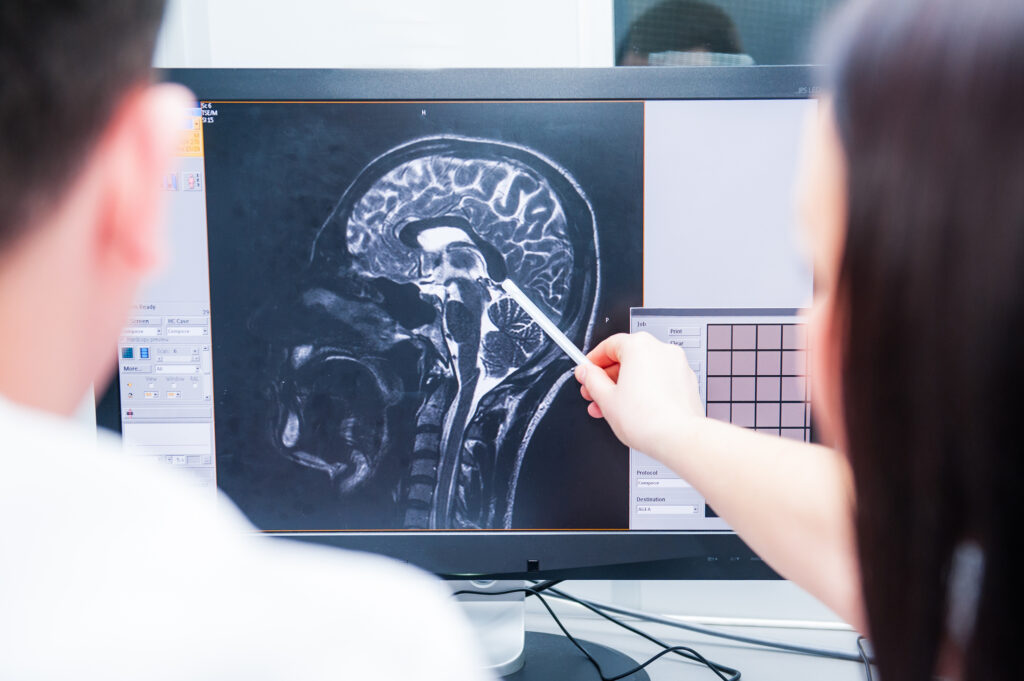Ever wondered about the fastest way to become a nurse and dive into a specialized healthcare field? If you’re considering a dynamic nursing career, radiology nursing might be your perfect match.
Radiology nurses play a crucial role in the diagnostic process, offering a blend of technical expertise and patient care. They prepare patients for complex imaging procedures, monitor their well-being during these procedures, and assist in interpreting the results.
This article will explore this fascinating world and uncover the unique roles, responsibilities, and skills you need to excel in this growing healthcare specialty.
Introduction to Radiology Nursing
Radiology nurses, or imaging nurses, are specialized registered nurses who focus on patient care during diagnostic imaging procedures. They ensure the safety and comfort of patients undergoing tests like X-rays, MRIs, and CT scans.
They work closely with radiologists, technologists, and other healthcare providers to ensure safe, efficient, and high-quality imaging services. Their expertise bridges the gap between technical imaging procedures and patient care, providing support and information to patients and their families.
Job Description and Duties
The role of radiology nurses is diverse and critical. They start by preparing patients for imaging procedures, which includes explaining the process and addressing any concerns. They administer contrast materials necessary for specific scans and carefully monitor patients for adverse reactions during the procedures.
In addition, they provide essential patient education and care before, during, and after imaging procedures.
Radiology nurses must stay vigilant for any signs of complications, providing immediate intervention if needed.
Work Environment
Radiology nurses work in various healthcare settings, including hospitals, outpatient clinics, and dedicated imaging centres.
They often collaborate closely with radiologists, who interpret the images, and radiologic technologists, who operate the imaging equipment. This fast-paced and technologically advanced environment requires radiology nurses to be adaptable and proficient with cutting-edge imaging equipment.
Their work involves direct patient care and technical tasks, making it essential for them to have strong communication skills and the ability to work well within a multidisciplinary team.
Education and Training Requirements
To become a radiology nurse, they must complete a nursing degree, such as an Associate Degree in Nursing (ADN) or a Bachelor of Science in Nursing (BSN).
Gaining clinical experience in general nursing is crucial after obtaining a nursing license. Specialized training in radiology nursing can be pursued through additional coursework or on-the-job training. Certifications such as the Radiologic Nursing Certification (CRN), a credential offered by the Radiologic Nursing Certification Board (RNCB), are highly recommended and often required.
Continuous education is essential to stay updated with imaging technologies and techniques advancements and could improve their employment prospects.
Essential Skills and Qualities
Radiology nurses need a solid technical knowledge of imaging equipment and procedures.
They must also possess strong patient care skills, including the ability to communicate effectively and empathetically with patients and their families.
Attention to detail is critical, as they monitor patients for adverse reactions and ensure accurate administration of contrast materials. Critical thinking and problem-solving skills are essential for managing unexpected complications during procedures.
Career Outlook and Advancement
The demand for radiology nurses is growing as the population ages, and advancements in imaging technology increase the need for diagnostic procedures. According to the Bureau of Labor Statistics, employment of registered nurses is projected to grow 6% from 2021 to 2031, with specialized nursing roles like radiology nursing experiencing even higher demand.
Radiology nurses can explore various career paths, including specializations in interventional radiology, management roles overseeing radiology departments, or nursing education positions teaching radiology nursing courses.
Challenges and Rewards
Like any healthcare profession, radiology nursing has its share of challenges. The workload can be demanding, and they must stay current with rapidly evolving imaging technologies and protocols.
The job can sometimes be stressful, particularly when dealing with anxious patients or complex procedures.
In order to relieve stress, many people will choose some simple but effective ways to decompress, such as Fidget Spinners. This compact toy not only helps to focus attention but also allows one to relax through the spinning action, briefly taking a break from a stressful work situation, adding a touch of relaxation and fun to a busy work day.
Radiology nurses play a vital role in diagnostic procedures and are relied on for accurate diagnoses and effective treatment plans.
They interact with patients during stressful situations, providing compassionate care, emotional support, and clear communication.
However, the rewards are substantial. It can be gratifying to make a meaningful impact on a patient’s well-being and be part of a dynamic healthcare team.
Conclusion
In summary, radiology nursing is a dynamic and rewarding career path that combines nursing expertise with advanced imaging technology.
From patient preparation and care to collaborating with interdisciplinary teams, radiology nurses play a crucial role in ensuring accurate diagnoses and positive patient outcomes.
If you’re seeking a challenging yet fulfilling nursing specialty, radiology nursing might just be the perfect fit. Who knows, it might just be the career move that unlocks your true potential and leaves you with a deep sense of professional fulfilment.
Disclaimer
The content provided in this article is for informational purposes only and does not constitute medical, nursing, or professional advice. While every effort has been made to ensure the accuracy of the information at the time of publication, Open MedScience makes no guarantees regarding its completeness, timeliness, or applicability to individual circumstances.
Readers are advised to consult qualified healthcare professionals or nursing bodies for personalised guidance and up-to-date requirements related to radiology nursing or any other specialised healthcare field. This article should not be relied upon as a substitute for professional training, certification, or licensure.
Open MedScience accepts no liability for any loss, injury, or damage arising from reliance on the information presented. The views expressed are those of the authors and do not necessarily reflect those of affiliated institutions or governing bodies.
home » blog » education »


